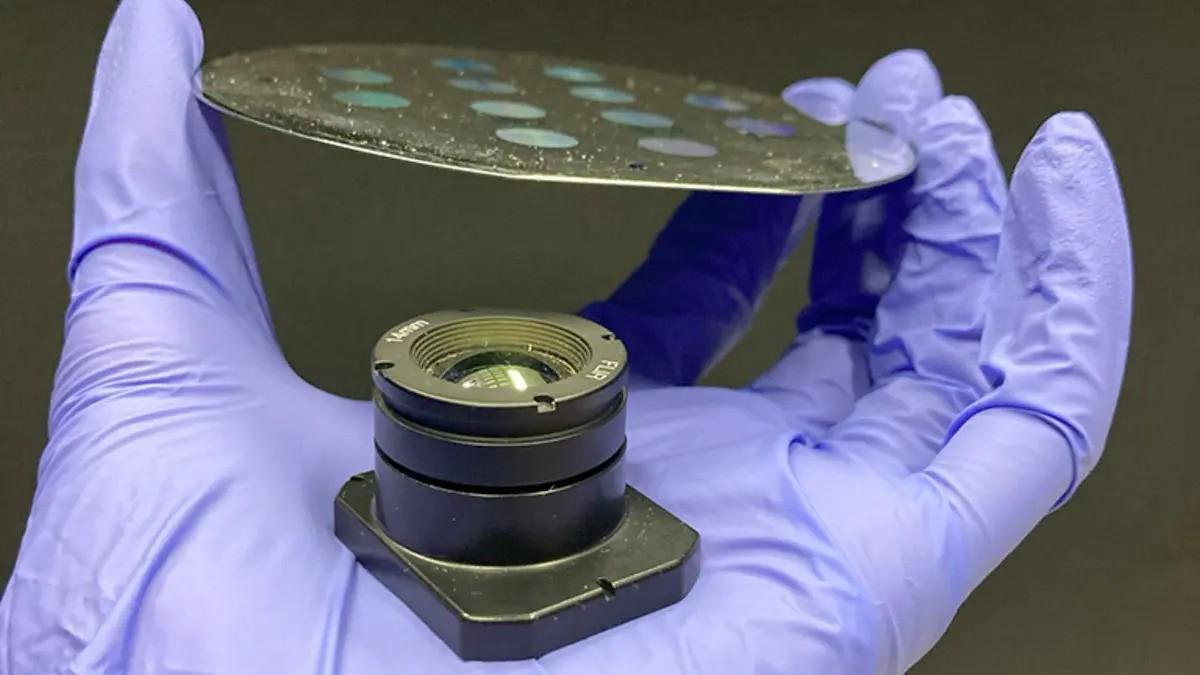The increasing reliance on imaging technologies across various sectors necessitates lightweight yet high-quality optical systems. Long-wavelength infrared (LWIR) imaging, enabling vision in darkness, smoke, and fog, traditionally employs bulky refractive lenses made from costly materials like germanium, hindering widespread use.
Recent advancements propose a solution through meta-optics, leveraging engineered metasurfaces composed of nanopillar arrays. These metasurfaces introduce controlled phase shifts to manipulate light, achieving results comparable to conventional optics but with reduced thickness.
Despite the promise, challenges like chromatic aberrations persist, especially in LWIR applications. Addressing this, researchers at the University of Washington introduced “MTF-engineering,” a novel design framework optimizing modulation transfer function (MTF) to maintain image contrast across spatial frequencies.
Led by Associate Professor Arka Majumdar, the team employs inverse design techniques and deep neural networks (DNNs) to expedite meta-optic design. By optimizing pillar shape and arrangement, they achieve rapid optimization of large-area optics. Their intuitive figure of merit (FoM), related to the MTF curve’s area, ensures optimal information transmission through the lens, enhancing image quality.
Fabricating their design from a single silicon wafer, the team’s germanium-free LWIR imaging system represents progress towards commercialization. They’ve also democratized their MTF-engineering framework, “metabox,” freely available on GitHub, empowering global researchers to design meta-optics.
“The figure of merit is related to the area under the MTF curve,” Majumdar explained in a statement. “The idea here is to pass as much information as possible through the lens, which is captured in the MTF. Then, combined with a light computational backend, we can achieve a high-quality image.”
This research extends beyond the laboratory, impacting industries reliant on imaging technologies. The lightweight, high-performance meta-optic systems promise enhanced capabilities in consumer electronics, national security, and other sectors. By offering their framework as open-access, the team fosters collaboration and innovation in meta-optic design worldwide.
Meta-optics present a promising solution to the challenges of traditional LWIR imaging systems, offering improved performance in a lightweight form. The MTF-engineering framework developed by the University of Washington researchers facilitates rapid optimization and enhances image quality, driving advancements in optical systems across various applications.

